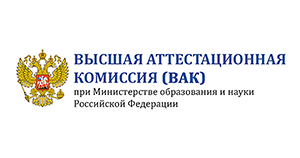|
Перейти
на сайт журнала "Врач" |
Перейти на сайт журнала "Медицинская сестра"
|
Перейти на сайт журнала "Фармация"
|
Перейти на сайт журнала "Молекулярная медицина"
|
Перейти на сайт журнала "Вопросы биологической, медицинской и фармацевтической химии"
|
Журнал включен в российские и международные библиотечные и реферативные базы данных
|
ВАК (Россия)
|
РИНЦ (Россия)
|
Эко-Вектор (Россия)
|
POSSIBLE DEFICIENCIES OF BIOELEMENTS AT VEGETARIAN DIET
DOI: https://doi.org/10.29296/25877313-2018-09-05
Issue:
9
Year:
2018
Vegetarian diets can be defined as the partial/complete exclusion of animal products from the diet depending on the type of vegetarianism. Reduc-tion or complete exclusion of products of animal origin leads to changes in the intake of essential nutrients into the body. The person receives the neces-sary bioelements -proteins, fats and carbohydrates with food. Proteins in different plant-origin food are composed by all essential amino acids, but the quantity of one or two amino acids may be low / limiting. Cereals and vegetables are particularly limited in their content of lysine and threonine, methio-nine. Dietary adjustments such as using more beans and soy products instead of other protein are recommended to vegetarians. Rations that do not con-tain fish, eggs or a sufficient amount of seaweed are usually poor in essential ω-3 fatty acids. Vegetarians especially vegans receive a large amount of dietary fiber indigestible in the body of carbohydrates. It is known that excessive fiber intake, can reduce the bioavailability of certain minerals, which is undesirable for children and adolescents. Plant products do not contain a significant amount of active vitamin B12. The most deficient component is vitamin B12 in the diet of vegan and vegetarians. Insufficiency of vitamin B12 intake was found in 43%88% of vegan. Lacto-ovo-vegetarian food can provide this vitamin of eggs and dairy product however its intake might not be enough. Intake of vitamin D is usually a vegetarian diet is reduced. The use of fortified foods is recommended at vegetarian diet.
Keywords:
vegetarian diet
vegan diet
deficiency
macronutrients
vitamins
References:
- Phillips F. Vegetarian nutrition // British Nutrition Foundation Nutrition Bulletin. 2005. № 30. R. 132–167.
- Agnoli C., Baroni L., Bertini I., et al. Position paper on vegetarian diets from the working group of the Italian Society of Human Nutrition // Nutrition, Metabolism & Cardiovascular Diseases. 2017. № 27. R. 1037-1052.
- Junatskaja T.A., Turchaninova M.S., Kostina N.N. Gigie nicheskaja otsenka pitanija vegetariantsev i lits so smeshannym pitaniem // Gigiena i sanitarija. 2015. T. 94.
- № 9. S. 72-75.
- Kristense N., Madsen M., Hansen T., et al. Intake of macro- and micronutrients in Danish vegans // Nutrition Journal. 2015. V. 14. № 115. R. 1-10.
- Bojarintsev V.V., Evseev M.A. Metabolizm i nutritivnaja podderzhka hirurgicheskogo patsienta: rukovodstvo dlja vrachej. SPb: Onli-Press. 2017. 259 s.
- Van Winckel M., Vande Velde S., De Bruyne R., Van Biervliet S. Clinical practice: vegetarian infant and childnutrition // Eur. J. Pediatr. 2011. V. 170. № 12. R. 1489–1494.
- Craig W., Mangels A. American Dietetic Association. Position of the American Dietetic Association: vegetarian diets // J. Am. Diet. Assoc. 2009. V. 109. № 7. R. 1266–1282.
- McCarty M., Barroso-Aranda J., Contreras F. The low-methionine content of vegan diets may make methionine restriction feasible as a life extension strategy // Medical Hypotheses. 2009. V. 72. № 2. R. 125–128.
- Venti C., Johnston C. Modified food guide pyramid for lactovegetarians and vegans // J. Nutr. 2002. V. 132. № 5.
- R. 1050-1054.
- Rodriguez N., Di Marco N., Langley S. Position of the American Dietetic Association, Dietitians of Canada, and the American College of Sports Medicine: Nutrition and Athletic Performance // J. American dietetic association. 2009. V. 109. № 3. R. 509-527.
- Richter M., Boeing H., Grünewald-Funk D., et al. Vegan diet. Position of the German Nutrition Society (DGE) // Ernahrungs Umschau. 2016. V. 63. № 04. R. 92–102.
- Judina S.B. Tehnologija produktov funktsional'nogo pitanija. M.: De-Li print. 2008. 280 s.
- Saunders A., Davis B., Garg M. Omega-3 polyunsaturated fatty acids and vegetarian diets // Med. J. Aust. 2013. V. 199. № 4. R. S22- S26.
- Cullum-Dugan D., Pawlak R. Position of the Academy of Nutrition and Die-tetics: Vegetarian Diets // J. Acad. Nutr. Diet. 2015. V. 115. № 5. R. 801-810.
- Uil'jamc K.L. Pischevye volokna i nutritivnaja podderzhka v pediatrii: sovremennye predstavlenija // Voprosy pitanija. 2010. V. 79. № 4. R. 42-49.
- Smirnov V.A., Klimochkin Ju.N. Vitaminy i kofermenty: Ucheb. posob. Ch. 2. Samara: Samar. gos. tehn. un-t. 2008. s. 91.
- Pawlak R., Lester S., Babatunde T. The prevalence of cobalamin deficiency among vegetarians assessed by serum vit-amin B12: A review of literature // Eur. J. Clin. Nutr. 2014. V. 68. № 5. R. 541–548.
- Allès B., Baudry J., Méjean C., et al. Comparison of sociodemographic and nu-tritional characteristics between self-reported vegetarians, vegans, and meat-eaters from the Nutri Net-Santé Study // Nutrients. 2017. V. 9. № 9. R. 1023.
- Pawlak R., Parrott S., Raj S., et al. How prevalent is vitamin B(12) deficiency among vegetarians? // Nutr. Rev. 2013. V. 71. № 2. R. 110–117.
- Fields H., Ruddy B., Wallace M., et al. How to Monitor and advise vegans to ensure adequate nutrient intake // J. Am. Osteopath. Assoc. 2016. V. 116. № 2. R. 96-99.
- Elorinne A., Alfthan G., Erlund I., et al. Food and nutrient intake and nutritional status of finnish vegans and non-
- vegetarians // PLoS One. 2016. V. 11. № 2. R. 1-14.
- Skal'nyj A.V., Rudakov I.A. Bioelementy v meditsine. M.: Mir. 2004. 272 s.
- Baranovskij Ju.A. Dietologija. Rukovodstvo. Izd. 3-e. SPb: Piter. 2008. 1024 s.
- Silva S., Pinho J., Borges C., Santos C., Santos A, Graça P. Guidelines for a healthy vegetarian diet. Lisbon: Direção-Geral da Saúde. 2015. 45 r.








